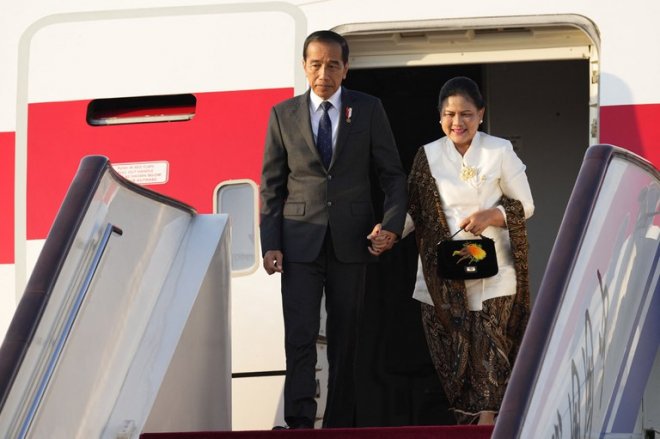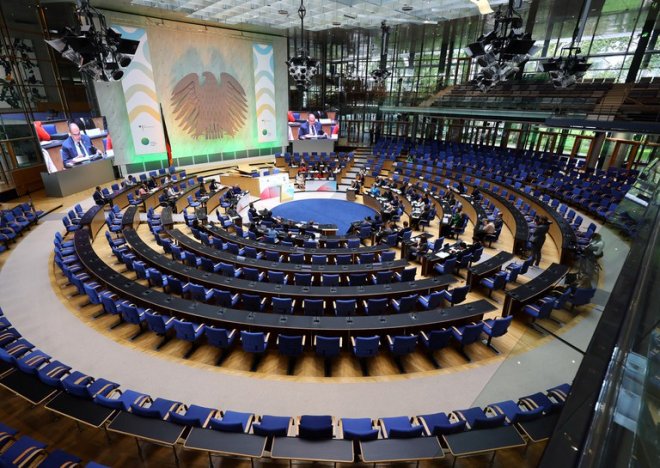Hong Kong's security law leads to 'boring' news coverage amid climate of fear
Hong Kong journalists still working in the city are being reduced to the status of government stenographers, as a climate of fear leads to widespread self-censorship, former reporters from the now-shuttered Apple Daily and Stand News warned in recent interviews with Radio Free Asia.International press freedom groups say the ruling Communist Party under supreme leader Xi Jinping has "gutted" press freedom in the formerly freewheeling city amid an ongoing crackdown on dissent in the wake of the 2019 protest movement.
Hong Kong journalists who fled the city after Beijing imposed a national security law from July 1, 2020, continue to campaign for press freedom for the city from overseas, while some eke out a freelance living following the closure of pro-democracy news outlets.
Lam Yin-bong, former assignment editor at Stand News, which shut down under investigation by national security police a few months after the Apple Daily was forced to close, said there are plenty of stories that are largely ignored by mainstream media outlets in Hong Kong these days.
"Quite a lot of voices have disappeared in the mainstream media in Hong Kong," Lam said. "For example, protesters who are about to go to prison or are about to be released from prison seem to have disappeared from public view."
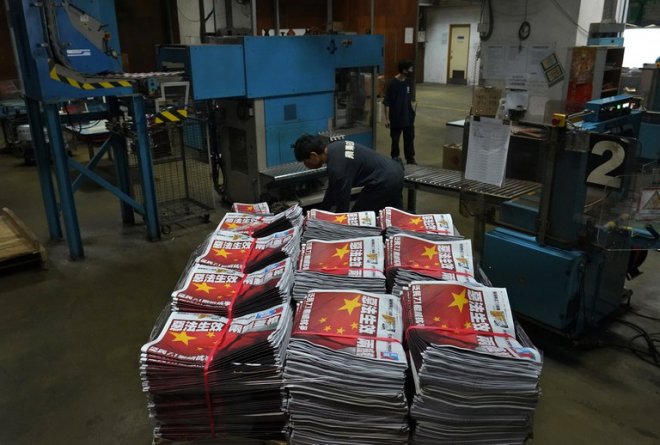 Copies of Apple Daily"s July 1, 2020, edition, with front page titled "Draconian law is effective, one country two system is dead" at the newspaper"s printing house in Hong Kong, July 1, 2020. Credit: Vincent Yu/AP
Copies of Apple Daily"s July 1, 2020, edition, with front page titled "Draconian law is effective, one country two system is dead" at the newspaper"s printing house in Hong Kong, July 1, 2020. Credit: Vincent Yu/APHe cited the recent release of "fishball rebellion" protester Lo Kin-man, jailed for "rioting" in the wake of 2016 unrest in the Mong Kok section of the city.
"He was given the longest sentence out of all the defendants, and the Mong Kok riot was a major event in Hong Kong history, and he was the last one to be released from prison, so personally, I think this is a news story," Lam said.
"Yet when he was released from the fairly remote Tong Fuk Prison, I was the only one waiting for him."
Trying to fill a gap
Lam, who set up his own ReNews online news service a year ago, said he is trying to fill a gap left by self-censorship in Hong Kong"s mainstream media, but lacks resources to make much of a difference.
Meanwhile, the mainstream media is inundated by a seemingly endless supply of trivial reporting on politically important topics, such as the recent visit by Beijing"s Hong Kong and Macao Affairs Office chief Xia Baolong.
"The Hong Kong government"s manipulation of the media is more obvious and its methods more mature than before, and the mainstream media is only too willing, or has gotten into the habit, of following the official lead," Lam said.
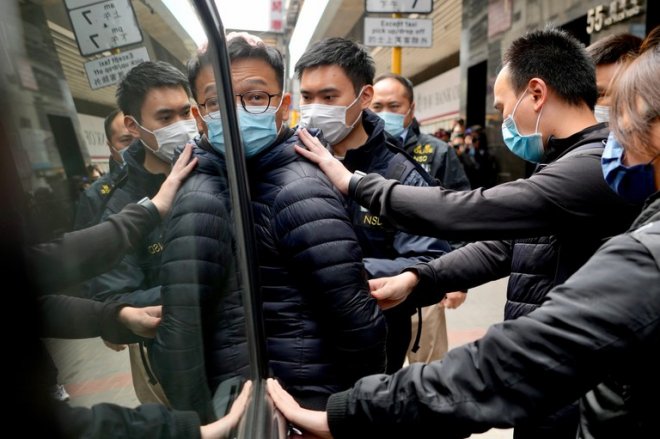 Stand News Editor Patrick Lam, is escorted by police officers into a van in Hong Kong, Dec. 29, 2021. Credit: Vincent Yu/AP
Stand News Editor Patrick Lam, is escorted by police officers into a van in Hong Kong, Dec. 29, 2021. Credit: Vincent Yu/AP"When Director Xia Baolong visited Hong Kong, a bunch of journalists filmed him going to Kowloon Bay for dim sum, and even quoted sources as saying what kind of dim sum he had," Lam said. "What is the significance of that information?"
"The mainstream media is flooded with this sort of [trivial] information," he said. "It"s not that nobody writes about the other stuff. The problem is that there is a huge amount of boring information in the media ... which drowns out the other stuff."
Risker interviews
Former Apple Daily reporter Shirley Leung, who has moved to the democratic island of Taiwan to set up the Hong Kong-focused Photon News, has carried out in-depth interviews with former 2019 protesters, as well as academics, politicians, civil society leaders and rights activists, in a bid to make sure their voices are recorded.
Those kinds of interviews are now much riskier under the national security law for journalists still in Hong Kong, she said.
"Since the Apple Daily and Stand News went, I would say that 80% of the people who once took part in protests and campaigns have disappeared from mainstream media reporting," Leung said.
"There is an atmosphere of fear that made me feel that I had to be able to write freely or report fully what my interviewees are saying," she said of her move to democratic Taiwan.
"Back when I was in Hong Kong, it was very difficult -- frankly there was a lot of self-censorship and I felt like what I wrote was lifeless."
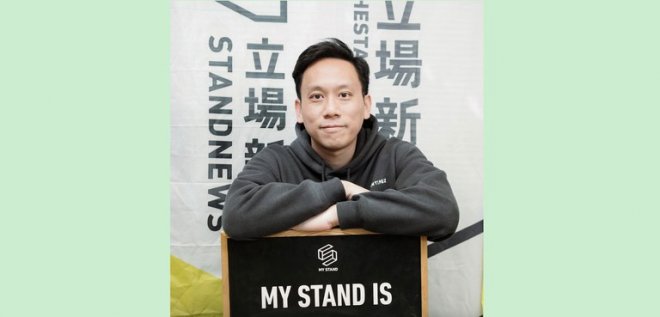 Lam Yin-bong, former assignment editor at Stand News, said there are plenty of stories that are largely ignored by mainstream media outlets in Hong Kong these days. Credit: Lam Yin-bong.
Lam Yin-bong, former assignment editor at Stand News, said there are plenty of stories that are largely ignored by mainstream media outlets in Hong Kong these days. Credit: Lam Yin-bong.With Photon News, Leung is hoping to exercise the old freedoms once enjoyed by Hong Kong"s journalists, and "bring different perspectives back to Hong Kong," she said.
But she said it is getting harder and harder to find people in Hong Kong who are still willing to give media interviews, in the current political atmosphere.
"Those awaiting sentencing are already behind bars, and the ones getting out don"t want to talk about it," Leung said. "This is all totally understandable, and very human."
In April, British lawmakers called on their government to issue emergency visas to journalists at risk of arrest or prosecution in Hong Kong, and to apply targeted sanctions to individuals responsible for the arbitrary arrest and pending trial of former Apple Daily founder Jimmy Lai.
Translated by Luisetta Mudie. Edited by Malcolm Foster.
|
本篇 |
不想錯過? 請追蹤FB專頁! |
| 喜歡這篇嗎?快分享吧! |
相關文章
AsianNewsCast










